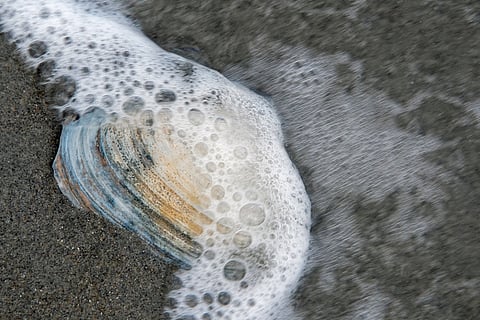

Rhode Island's state clam, the Northern quahog, has been in decline since the 1980s.
Adobe Stock
U.S. Senators Sheldon Whitehouse (Democrat, Rhode Island) and Tim Scott (Republican, South Carolina) have introduced a bipartisan bill to study the causes behind the decline of quahog (hard shell clams) populations and other native shellfish along the East Coast of the United States.
The QUAHOGS Act (Quantifying Uncertainty and Action to Help Optimize Growth of Shellfish) would establish a research task force made up of federal agencies, fishery management councils, state agencies, industry leaders, scientists, and other stakeholders.
Despite not being overfished, Rhode Island’s state clam, the Northern quahog, has been in decline since the 1980s. Populations of oysters, scallops, and soft-shell clams have also decreased.
Suspected causes include ocean acidification, nitrogen reductions, the loss of seagrass meadows, and declining phytoplankton production. However, without a definitive explanation, it remains difficult to implement an effective recovery plan.
"Unfortunately, quahog and other shellfish landings are in steady decline across the Eastern Seaboard, and it’s been difficult for shellfishermen and researchers to pinpoint exactly why," said Senator Whitehouse, co-founder of the Senate Oceans Caucus.
Moreover, Senator Scott noted: "South Carolina's shellfish industry depends on healthy bivalve populations, and this task force will support the research needed to develop science-based solutions that protect both our natural resources and the livelihoods they sustain."
Among the members of this task force would be a NOAA chair, representatives from the Environmental Protection Agency (EPA), the Department of Agriculture, and the fishery management councils of New England, the Mid-Atlantic, the South Atlantic, as well as the Atlantic States Marine Fisheries Commission.
Furthermore, the group would include state representatives from fish and wildlife agencies, seafood industry leaders, academic experts, and at least one Tribal representative.
"The QUAHOGS Act supports the science needed to keep East Coast shellfisheries strong in the face of changing ocean conditions – an essential step in protecting our ecosystems, economy, and cultural heritage," assured Matt Griffin, Rhode Island Representative of the East Coast Shellfish Growers Association.
